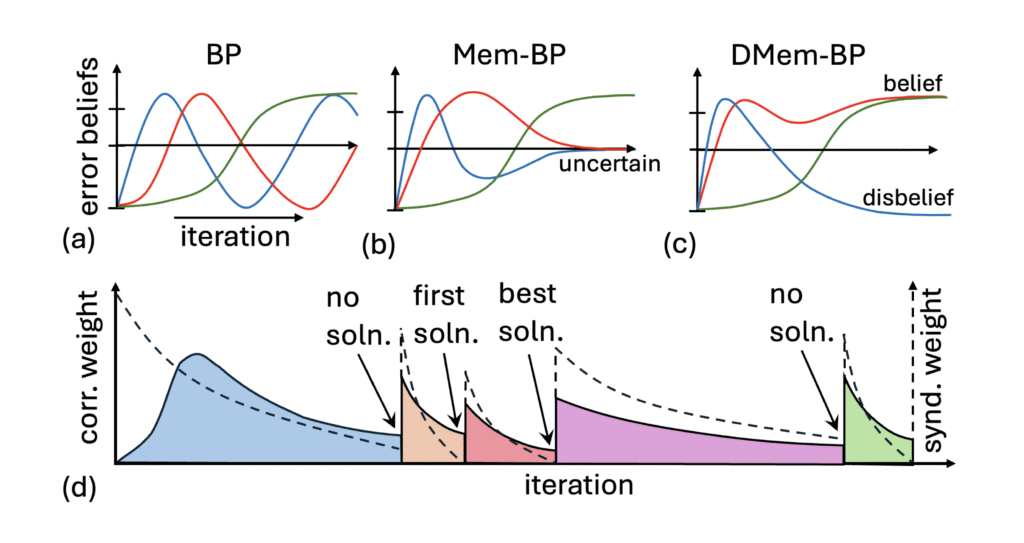
Researchers at IBM have devised a new algorithm, Relay-BP, for decoding quantum Low-Density Parity-Check (qLDPC) codes. This algorithm is designed to address the challenge of performing real-time error correction for large-scale, fault-tolerant quantum computers. It is part of a larger set of components that work together to detect and correct errors, which is necessary for achieving fault-tolerant quantum computing.
Relay-BP is an improved belief propagation algorithm described as being flexible, compact, fast, and accurate. The research shows that Relay-BP delivers a roughly 10x improvement in accuracy when compared to the BP+OSD algorithm, while maintaining and, in some cases, improving upon the speed of standard belief propagation. The algorithm’s effectiveness is attributed to the introduction of asymmetric memory strengths, which helps it converge on a final error belief at a faster and more accurate rate. The decoder is designed to be amenable to efficient implementation on classical hardware such as FPGAs or ASICs.
The development of Relay-BP is considered a step toward fault-tolerant quantum computing. The research team plans to produce a real-time decoder system and eventually test their decoders on hardware with the Kookaburra system, with testing potentially starting as early as 2026. This work addresses the decoding challenge in quantum memory, which is a necessary component for scalable quantum computing. The research highlights the role of interdisciplinary thinking in advancing the field.
Read more about the Relay-BP algorithm on the IBM Quantum blog here, in the arXiv paper here, and review QCR’s previous report on IBM’s roadmap here.
August 4, 2025

